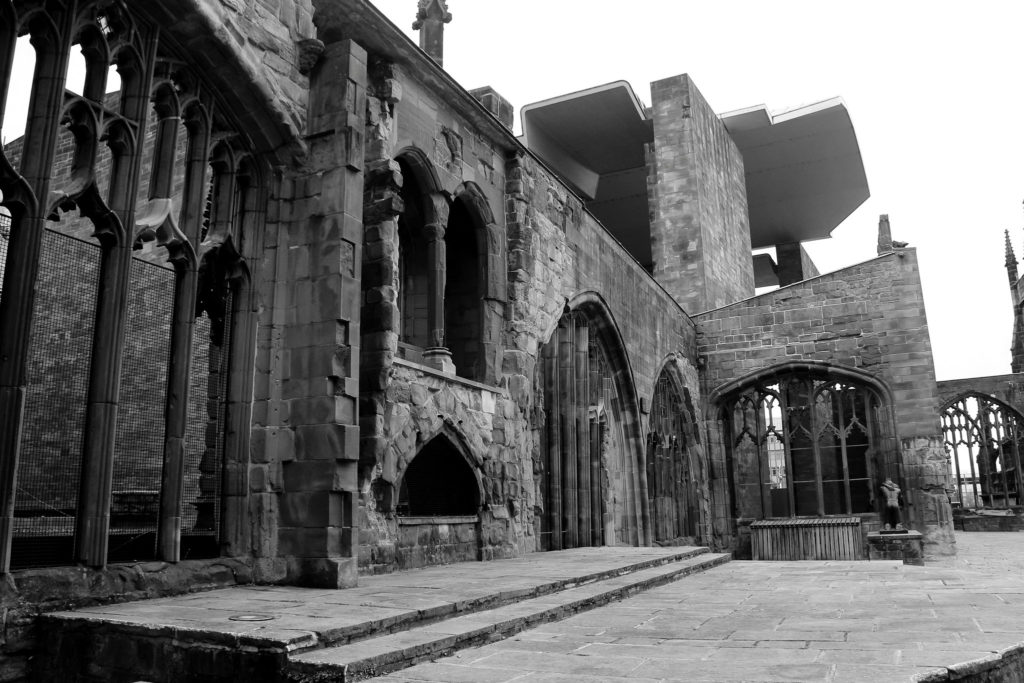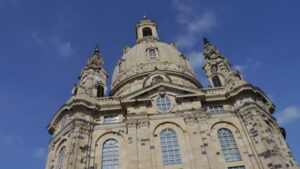The Coventry Carol, arranged by Michael McGlynn
Amid the joy and festivities of the Christmas season, we encounter a dark tale: the Slaughter of the Innocents. The story of King Herod ordering the death of Bethlehem’s male children under the age of two is recorded in Matthew 2:13-23. And so, among the songs that have become part of the standard repertoire of Christmas, we find a lament: The Coventry Carol.
The text first appeared in The Shearmen and Tailors’ Pageant, one of a cycle of mystery plays originating in the English town of Coventry and dating back to the 14th century. Robert Croo produced a written manuscript of the play in 1534 in which we find the text of the carol. Thomas Mawdyke added the music in 1591.
The carol gained prominence through another dark tale: the bombing of Coventry Cathedral on November 14, 1940. The BBC included the carol in a Christmas radio broadcast from the Coventry ruins that very year, and the lamentation took on particular relevance.

The ruins of the bombed cathedral were left in place and a new cathedral was built next to it. The ruins still serve today as a reminder. A cross of nails sits on the altar of the destroyed Cathedral, fashioned after the bombing from medieval nails found in the rubble.

Professor Carol and I often visit Dresden, a German city utterly destroyed in the same war. We watched the reconstruction of the Frauenkirche there (completed in 2006). It is a testament to reconciliation. The “Flame of Reconciliation,” by sculptor Henryk Skudlarski, was commissioned and placed in the church by citizens of the Polish town of Gostyn, where 30 people had been executed in the initial German invasion of Poland in 1939. The cross atop the Frauenkiche’s rebuilt cupola was crafted by Alan Smith whose father had flown a British bomber in the raid that destroyed Dresden in February 1945.
And on the altar of the Frauenkirche sits a cross of nails built from the ruins of Coventry Cathedral.
Lully, lullay, thou little tiny child,
Bye bye, lully, lullay.
Thou little tiny child,
Bye bye, lully, lullay.
O sisters too, how may we do
For to preserve this day
This poor youngling for whom we sing,
“Bye bye, lully, lullay”?
Herod the king, in his raging,
Chargèd he hath this day
His men of might in his own sight
All young children to slay.
That woe is me, poor child, for thee
And ever mourn and may
For thy parting neither say nor sing,
“Bye bye, lully, lullay.”



